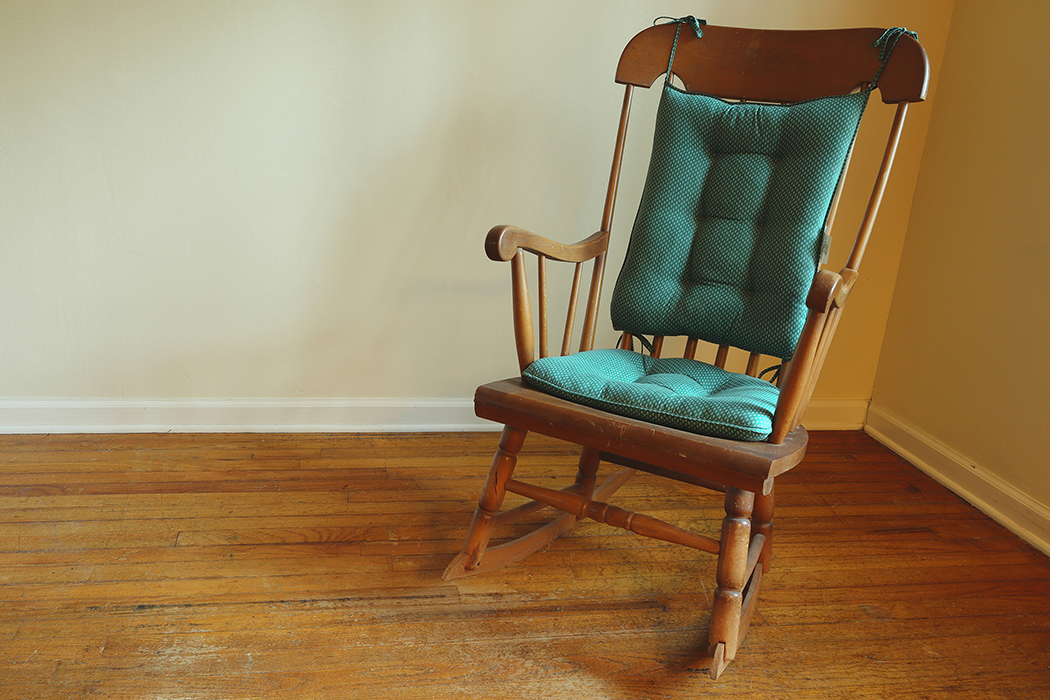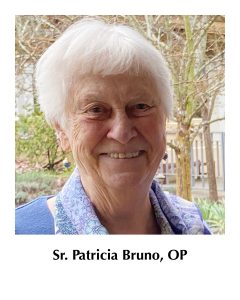- All
- Wisdom
- We Stand on Their Shoulders
- Vocation
- Uncategorized
- Stories Seldom Heard
- Spirituality
- Social Justice
- Prayer
- Peace
- Oneness
- Love
- Letting Go
- Lent
- Joy
- Inspirational Images
- Hope / Healing
- Holy Week
- Gratefulness
- God's Presence
- General News Stories
- Forgiveness
- Finding God
- Faith
- Easter
- Dominican Saints
- Discipleship
- Courage
- Christmas
- Catholic Sisters Week
- Care of the Earth
- Blessing
- Beauty
- Advent
- #justiceOPportunity
February 22, The Feast of the Chair of Peter
Sr. Patricia Bruno, OP

271st Edition, February 2022
 Welcome to Stories Seldom Heard. I would especially like to welcome those who will participate in the in-person and zoom “Poetry, Imagination and Pope Francis Retreat” at Santa Sabina. If you would like to attend follow the link below or copy and paste it into your browser. The link will lead you to the description and the registration page. Santa Sabina’s phone number is 415-457-7727 if you need more information.
Welcome to Stories Seldom Heard. I would especially like to welcome those who will participate in the in-person and zoom “Poetry, Imagination and Pope Francis Retreat” at Santa Sabina. If you would like to attend follow the link below or copy and paste it into your browser. The link will lead you to the description and the registration page. Santa Sabina’s phone number is 415-457-7727 if you need more information.
http://www.santasabinacenter.org/node/213
Winter is not an easy time of year, especially this year–the second year of the pandemic. To add to the stress of winter, many of us have experienced the death of a loved one and/or a dear friend. Wakes and funerals are difficult times for everyone involved, but they can also be times of comfort and healing for the grieving family. The stories that are shared at wakes bring back wonderful memories of joyful family celebrations and weddings and baptisms of dear friends. They remind us of the deceased person’s accomplishments, as well as their gifts and talents.
The pandemic has complicated all social gatherings. However, a friend of mine attended a wake service for an older gentleman, Lou, who lived in her neighborhood. The gathering wasn’t elaborate. To honor the recommended health protocol the wake was held in the church hall. There was a large spray of flowers and a simple altar. On a long, well-decorated table were photographs and memorabilia. When my friend walked into the hall, she could smell coffee brewing. Then she saw the padded rocking chair that “lived” in Lou’s kitchen for many years. Ally, Lou’s wife, was greeting each friend as they arrived. My friend knew many of the guests, but as the evening went on, she realized that some of the men were from Lou’s Alcoholic Anonymous community, a community Lou had been part of for 20 years.
Ally was the first to speak. She began by saying how Lou, in the early days before his involvement in AA, would have her call his boss most every Monday morning to make excuses for him. She would say Lou was sick or had a touch of the flu or his back was giving him trouble. As you probably have guessed, these excuses were code words for the fact that Lou had a royal hangover. As time went on, Ally said she prayed for wisdom to know what to do and the courage to do it. Then one day she knew. When Lou asked her to call the office and say he didn’t feel well, she refused. She told Lou she wouldn’t lie for him one more time. She wasn’t sure what Lou’s reaction would be so just in case she stood by the door so she could make her escape if necessary. But Lou took her stance! It was that one decision by Ally that got the ball rolling. Or as Ally said, she knew it was the grace of God that gave her the wisdom to know what to do and the strength to do it. Within two weeks Lou’s boss had him in a substance abuse program. It was the beginning of a new life for Lou, Ally, and their extended family.
After Ally spoke many of the men present got up and shared their stories. One man thanked Lou for not only saving his life but also saving his relationships with his son and family. The stories continued one after the other. The men recounted how Lou saved their lives, their jobs, and their families. As my friend listened, she found herself looking at Lou’s padded kitchen chair. She realized it was more than just a padded rocking chair. It was a listening chair from which no judgments were made, no resentments held: a listening chair that was always available to anyone who came through the door. No matter what time of day or night, if someone called Lou, he would say, “Come on over. The coffee is on and the door is open.”
Lou spent hours in the kitchen sitting in his padded rocking chair listening and encouraging those who came to speak. By the time my friend left the hall that evening, she felt as though she had been at a canonization not of a perfect person but of a struggling disciple. Lou had suffered greatly and recognized his dependency on God. Through his sufferings, he had become a person of integrity and compassion who literally over the twenty years of sobriety saved hundreds of lives and relationships.
That small padded rocking chair might sound like a far cry from the feast we’re celebrating this month. The Feast of the Chair of Peter evokes for many of us the image of the statue of Saint Peter in the Basilica in Rome. The statue is huge. It is hard to reach. Saint Peter is stately and strong as he sits in an enormous throne-like chair. It’s a bold reminder of Peter’s authority. But perhaps a small padded kitchen rocking chair is not as far away from the Chair of Peter as we might think because the Chair of Peter is also a listening chair. People come from every country to the Basilica in Rome to pray. Millions of pilgrims have sat before the Chair of Peter, placed their hands on his barely reachable foot, as Peter witnessed their tears and listened to their stories of struggle, pain, grief, joy and gratitude.
The Chair of Peter is still listening. In Pope Francis’ homily on October 10, 2021, in Saint Peter’s Basilica, he characterized the Synod on Synodality as a time to encounter, listen and discern together. Pope Francis has called each of us to respond to the Synod. Listening sessions are being arranged in each parish. All of the parishioners, children, teenagers, and our venerable elders, are all invited. All are encouraged to listen to their own hearts, to other people’s experiences, and to the Spirit of God who is always inviting us, personally and communally as a church, to conversion. Pope Francis writes, “The path of synodality is the path that God expects of the Church of the third millennium. What the Lord asks of us, in a sense, is already completely contained in the word ‘Synod’: Walking together -laity, pastors, Bishop of Rome” (1).
Pope Francis is inviting “the entire church in discerning a new ecclesial model initiated by Vatican II” (2). Yves Congar, a well-respected Dominican theologian whose writings and insights were significant during Vatican II stated, “If I were asked what is the ‘seed of life’ coming from the (Vatican II) Council that is the richest in pastoral consequences, I would answer without hesitation: the rediscovery of the People of God as a whole, as a totality, and consequently the resulting co-responsibility for each of the members” (3). “Listening to the People of God is truly to listen to what the Spirit is saying to the Church. The option to ‘consult the People of God’ depends on this rediscovery: if we were not certain that the Spirit speaks to the Church, and does so by virtue of the anointing given at baptism, then the consultation would be reduced to a survey, with all the risks of manipulation of public opinion that are typical of political systems based on representation” (4).
Our lives might not be as dramatic as Peter’s, Ally’s or Lou’s, but each of us is called to listen to the Spirit who continually calls us individually and as a Church to conversion. In the Gospel for this Feast, Jesus asks Peter and us, “Who do you say I am?” Our response to that question has hopefully developed over the years. A twin question that we might also ponder is, “Who do we say we are as disciples of Christ?” There are no shortcuts to discipleship. At this time in our lives, the Church calls us to fully participate in the synod process. We can only do this if we understand what the church is asking of us. As modern-day disciples, the Church is first asking us to be informed, to educate ourselves as to why we are involved in this process. One way to begin might be to read and ponder the article I have quoted in this reflection. Study is hard and time-consuming, but it is appropriate preparation for our parish listening sessions (5).
Blessings as we continue walking the synodal journey together. May the Spirit guide our prayer, study, and discussions as we ponder Jesus’ question, “Who do you say I am?”
- A version of this story appeared in the Sept 3-16, 2021 print issue in the National Catholic Reporter under the headline: Synodality’s promise for a more inclusive church. Using this title, the complete interview of Rafael Luciani by Hosffman Ospino can be found on the web.
Rafael Luciani, a native of Venezuela, serves as a theological expert for the regional Latin American Episcopal Council (CELAM) and the Confederation of Latin American Religious (CLAR). Hosffman Ospino is a professor of theology at Boston College, where he chairs the Department of Religious Education and Pastoral Ministry. He has conducted several national studies on Hispanic Catholics.
“Stories Seldom Heard” is a monthly article written by Sister Patricia Bruno, O.P. Sister is a Dominican Sister of San Rafael, California. This service is offered to the faith community to enrich one’s personal and spiritual life. The articles can be used for individual or group reflection. If you would like “Stories Seldom Heard” sent to a friend, please send a note to brunoop2017@gmail.com.
